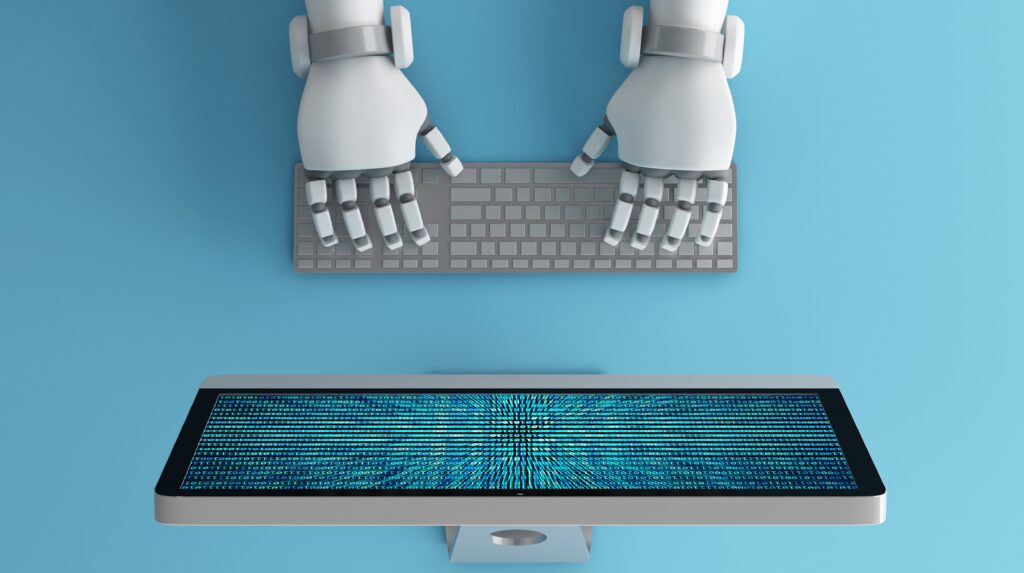Key takeaways
- Artificial intelligence helps ITSM software deliver IT services faster by automating time-consuming tasks that reduce completion timelines.
- AI-based ITSM solutions use virtual assistance, chatbots, and process automation to improve traditional ITSM solutions.
- AI-based ITSM requires fewer staffing resources, so managers need a workforce placement plan for the ITSM staff.
Artificial Intelligence (AI) tools and features are becoming popular additions to many software applications. Predictive analysis, search algorithms, and digital assistants are AI tools that enhance the performance of business applications. Information Technology Service Management (ITSM) software is no different. Using AI tools in ITSM software allows businesses to increase business efficiency and productivity.
How is AI used in ITSM software?
ITSM AI applications benefit from automated ticket classification, chatbot tier I response to customers, and workload optimization for routine tasks. AI tools used to execute service requests, close incident tickets, and provide instant answers to customers’ questions are examples of how AI improves the effectiveness of ITSM applications.
For popular ITSM solutions, check out our Top IT Service Management (ITSM) Software article.
What is AI Service Management (AISM)?
Artificial Intelligence Service Management (AISM) surpasses the limitations of a traditional ITSM solution. For example, AI and Machine Learning (ML) tools substantiate IT issues through root cause analysis that is proactively addressed and resolved quickly. Embedded intelligence and service automation added to a traditional ITSM solution becomes an AISM system that improves the overall speed and efficiency of the application.
Advantages of using an AI-based ITSM versus a traditional ITSM solution
With an updated traditional ITSM system with good knowledge base information, businesses can gain immediate results from using an AI solution for ITSM. Chatbots can use knowledge base information to automatically recommend a corrective action to resolve an IT issue by using the highest resolution rate for an IT issue. The chatbot will choose the next highest resolution percentage if the recommended action does not work. The AISM can automatically create an incident ticket if none of the recommendations work.
Machine learning (ML) can identify which knowledge-based articles have the highest resolution rate. ML can also identify articles that need to be updated or deleted for lack of use. AI and ML can help the change management processes by analyzing the risk introduced with the new change, which helps reduce incidents and avoid outages. The root cause analysis executed on proposed changes reduces mean time to recovery (MTTR) and improves productivity.
Some AI benefits can be immediately implemented, provided an ITSM solution contains updated information. Other AI benefits require a learning period to produce accurate and helpful information. Whether the AI benefits are immediate or prolonged due to a learning period, the AI-based ITSM solution has significant advantages over a traditional ITSM solution. AI-based ITSM solutions use AI, ML, and Natural Language Processing (NLP) tools to analyze root causes, provide chatbot responses, or virtually answer customers’ questions using NLP.
What ITSM core processes can use AI tools?
Artificial Intelligence tools are most valuable when they help reduce IT service metrics or provide helpful information much quicker than what a human can do. All of the AI tools mentioned up to this point significantly improve these ITSM core processes.
First call resolution (FCR) entry point
AI tools used at an ITSM help desk can increase the first call resolution percentage by comparing past incident ticket resolution with present incident tickets. If the past and present tickets have similar descriptions of an IT issue, the AI tool will recommend the correct action from the older ticket. The highest percentage corrective action will be the first recommendation, followed by the second highest percentage. As a result, the FCR percentage rate will eventually increase.
If the AI tool does not find a relevant corrective action, it can generate an incident ticket and send it to the IT section best suited to correct the IT issue. AI tools serve a vital role in optimizing service requests for new services. Service requests that are standard changes are easily handled by AI tools using process automation to execute specific administrative steps before a technician executes the change.
Knowledge management
The more accurate the knowledge base information is in an ITSM application, the faster and better an AI tool can help a business improve its IT service metrics. Based on an IT issue or search criteria, AI tools provide relevant information to a question or respond with the most likely corrective action regarding an IT issue. As AI tools learn from past experiences, the knowledge base becomes more accurate with provided responses to IT staff and customers.
Incident ticket categorization
Whenever FCR cannot be met, an incident must be created and sent to the correct IT section for corrective action. For example, if an AI tool cannot initially resolve a ticket, an AI tool will automatically generate a ticket and send it to the right IT section.
AI-enabled assistant to technicians
Using validated information from a knowledge base that is easily accessible to a technician in the field or office significantly improves the IT service metrics. In addition, the relationship between the core processes are interconnected. Once all the AI tools are used in the core processes, the overall ITSM process improves, and eventually, these improvements seep into the entire organization.
Process automation
Where feasible, process automation moves service requests and incidents from one core process to another without much human intervention. Process automation reduces human error and requires fewer workforce resources to execute ITSM actions to resolve tickets and requests.
Tangible benefits of using an AI-enabled ITSM solution
After all of the ITSM processes have been enabled with the appropriate AI tool, the first tangible benefit a company will notice is time saved. As the knowledge base becomes more accurate in correctly suggesting resolution actions, the mean time to resolution (MTTR) will decrease. Repetitive mistakes introduced by human error will be minimized by using AI-driven ITSM processes, and the ability of AI tools to automate manual processing tasks reduces the chances of human errors from occurring.
An updated knowledge base can be a teaching aide to new service desk agents and a reference source for experienced agents. In addition, machine learning can identify abnormal behavior, send an alert, or block abnormal processes or data.
Machine learning and NLP AI tools boost the performance of the ITSM help desk through improved performance of the service desk agents that trickle down to customers through self-service resolutions, which leads to improving all facets of the ITSM processes. The overall improvement in ITSM operations reduces costs by eliminating any potential outsourcing and increasing the productivity of each employee.
Choosing the right time to buy an ITSM / AISM solution
Companies already using a traditional ITSM application should strive to purchase an AISM solution to improve continually. Technological advancements are constantly enhancing business operations, and businesses willing to take the wait-now approach will remain challenged with human errors, old knowledge base information, and meeting SLA timelines.
Looking for the latest in ITSM solutions? Check out our IT Software Buyer’s Guide.
FAQs
What is AI service management?
AI service management is the integration of artificial intelligence (AI) technologies, such as machine learning and natural language processing, into IT service management processes.
What are the challenges of traditional service management?
Traditional ITSM solutions require a workforce to manage the ITSM’s core processes. The more human resources used to create or update tickets or requests, the more susceptible a traditional ITSM becomes to human errors being introduced. Regularly monitoring service level agreements (SLAs) and making the necessary changes to stay within the agreed-upon SLA terms can be challenging for a traditional ITSM solution.
What impact do AI tools have on ITSM staff?
Learning how to use AI tools will require some training for the IT staff. Artificial intelligence tools require fewer staffing resources needed, which generates cost savings. However, cost savings may lead to unemployment if employees cannot be trained or transferred. Job security will become a topic, and management needs to have a manpower placement plan before AI is introduced.





